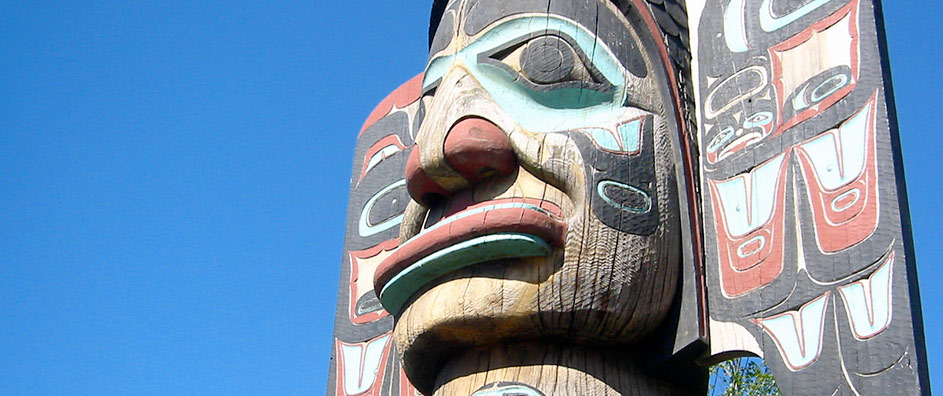The intersection of indigenous spirituality and global religious narratives has long captivated the minds of scholars, spiritual seekers, and practitioners of faith alike. Among these narratives, the Baha’i Faith offers a profound and inclusive perspective, acknowledging the divine manifestations that have arisen within diverse cultural contexts, particularly in the form of Native American traditions. This exploration of Native American messengers of God through a Baha’i lens reveals not only the respect afforded to these figures but also the encapsulation of a broader cosmic plan consisting of progressive revelation.
To comprehend the significance of Native American spirituality within Baha’i teachings, one must first recognize the pivotal concept of “progressive revelation.” Within this framework, Baha’is believe that God has sent a series of messengers or prophets, each imparting teachings suitable for the socio-religious context of their time. This notion extends beyond conventional interpretations of linear chronology, suggesting that each messenger, from Moses to Muhammad and beyond, contributes to the tapestry of divine guidance, transcending earthly boundaries to illuminate a universal path.
This concept ideally positions Native American spiritual leaders as potential embodiments of divine will. The recognition of their role urges an examination of their teachings and traditions through the lens of Baha’i philosophy. Major historical figures, such as the revered figures of the Lakota, Hopi, and Navajo nations, embody profound wisdom that resonates with Baha’i principles of unity, love, and justice. In many Native American cultures, the reverence for nature, the interconnectedness of all life forms, and the embodiment of respect for the spiritual world align seamlessly with Baha’i moral tenets. This parallel of philosophical underpinnings fosters a mutual respect that is both enlightening and transformative.
Among the tenets of the Baha’i Faith is the emphasis on the oneness of humanity. This doctrine is echoed in various indigenous teachings, which prioritize community cohesion and harmony with the environment. The extensive cultural narratives surrounding Native American messengers elucidate the significance of familial and communal bonds, reframing spirituality as an interwoven fabric that connects individual experiences to collective existence. Such perspectives resonate with Baha’i teachings which advocate for unity across diverse cultures and backgrounds, reinforcing the necessity for a collective approach to societal progress.
Moreover, the incorporation of Native American spiritual insights into Baha’i discourse reveals an acknowledgement of the distinct epistemologies that have emerged within various societies. The fascination with Native American messengers stems from their profound understanding of the natural world, manifested in teachings about stewardship, ecology, and ethical living. The reverence for nature evident in Native American practices invites Baha’is to further explore the implications of stewardship in their daily lives. The commitments to environmental responsibility and sustainability, championed by Baha’i principles, find resonance in the age-old traditions of many indigenous cultures, thereby enriching the narratives that both communities offer to the contemporary world.
In the context of Baha’i belief, one observes the significance of visionaries who transcend conventional notions of divine messengers. The Native American spirituality, rife with allegorical reference to spirits, ancestors, and elements, enriches our understanding of the metaphysical. Many tribes share the belief in the Great Spirit as a universal divine essence, akin to the Baha’i concept of the “Unknowable Essence.” This recognition of a singular divine unity elevates Native American teachings as legitimate and essential components of a global spiritual dialogue, thereby inviting dialogue with traditional Baha’i sacred texts.
Further, Baha’i literature emphasizes the importance of diversity and unity, inciting believers to appreciate various cultural expressions of spirituality. This dovetails with the recognition that many Native American cultures possess prophets or spiritual guides who have imparted teachings that are intrinsically valuable. The teachings of figures such as Black Elk or the emphasis on dream visions in various tribes underscore the need to harmonize distinct spiritual practices within the collective consciousness of humanity. The fascination with these messengers enhances our understanding of how spirituality can manifest in various forms while still adhering to divine truth.
It is crucial to acknowledge the complex historical context which shapes the interaction between Baha’is and Native American traditions. The colonization of the Americas led to substantial disruptions of indigenous cultures, resulting in a profound loss of sacred knowledge and practices. Baha’is are called to engage with this legacy thoughtfully, ensuring that their exploration of Native American spirituality is respectful and cognizant of historical injustices. This contextual awareness deepens one’s understanding of the richness of indigenous spiritual traditions while fostering opportunities for meaningful dialogue and reconciliation.
Ultimately, the Baha’i perspective recognizes the value inherent in every culture’s spiritual contributions, including those articulated by Native American messengers of God. As believers strive to engage with these teachings, they are invited to embark on a journey of understanding, empathy, and solidarity. Such engagements not only reflect the inclusivity of the Baha’i Faith but also promote a shared commitment towards global unity, respect for diversity, and the pursuit of justice—core tenets of both Baha’i and Native American spiritualities.
In conclusion, the exploration of Native American messengers of God within Baha’i teachings transcends simple fascination; it beckons believers towards recognizing a divine continuum that respects all paths leading to the ultimate truth. By embracing diverse spiritual narratives, individuals can cultivate a richer, more inclusive understanding of their faith and its role in an increasingly interconnected world. Through the lens of unity, the insights garnered from Native American traditions further illuminate the profound and intricate tapestry of humanity’s spiritual journey towards collective enlightenment.
